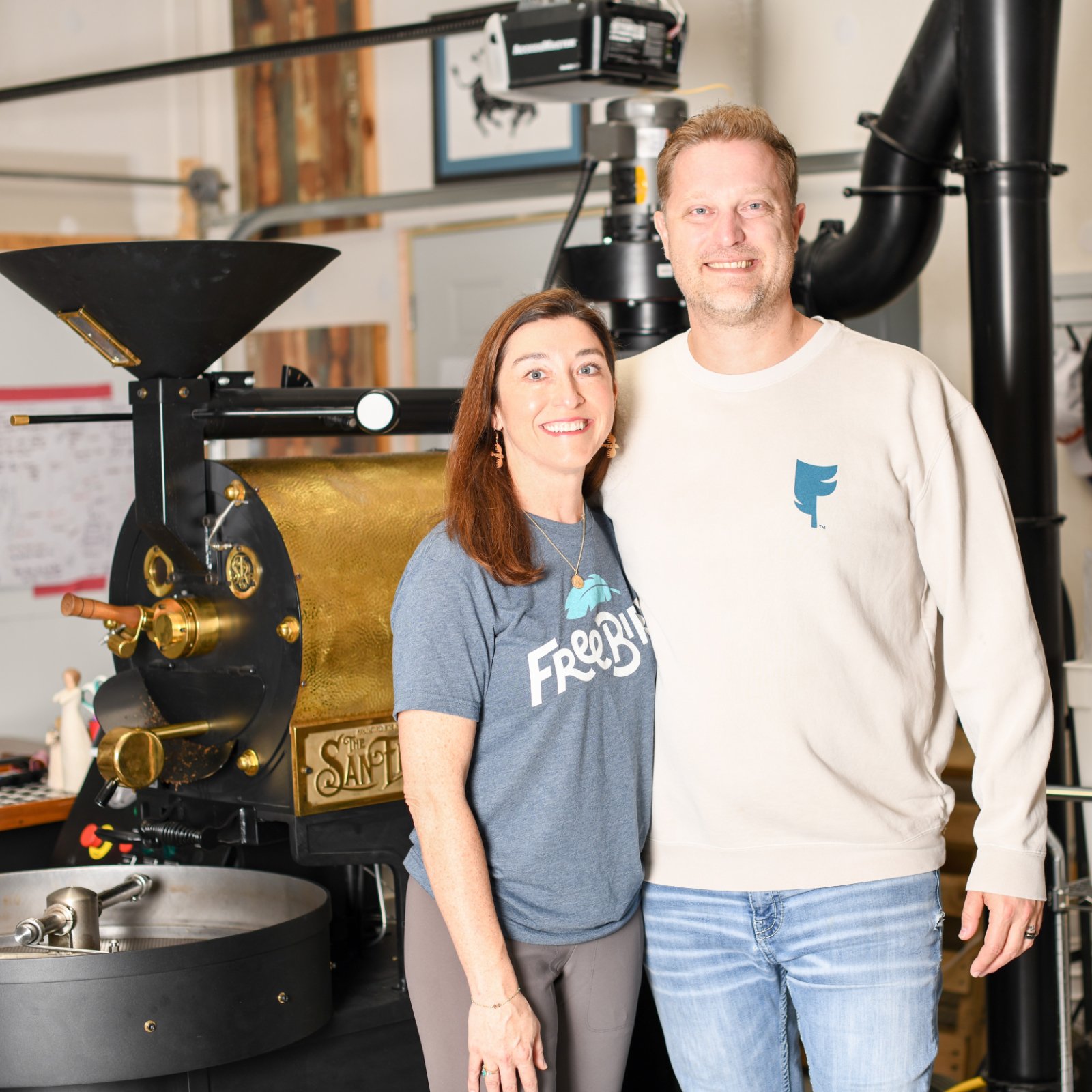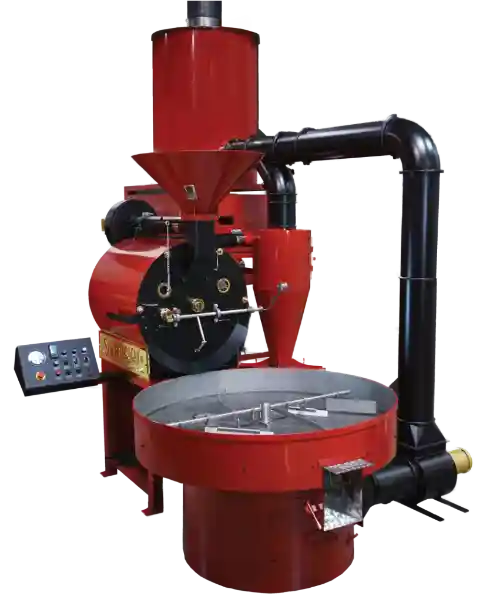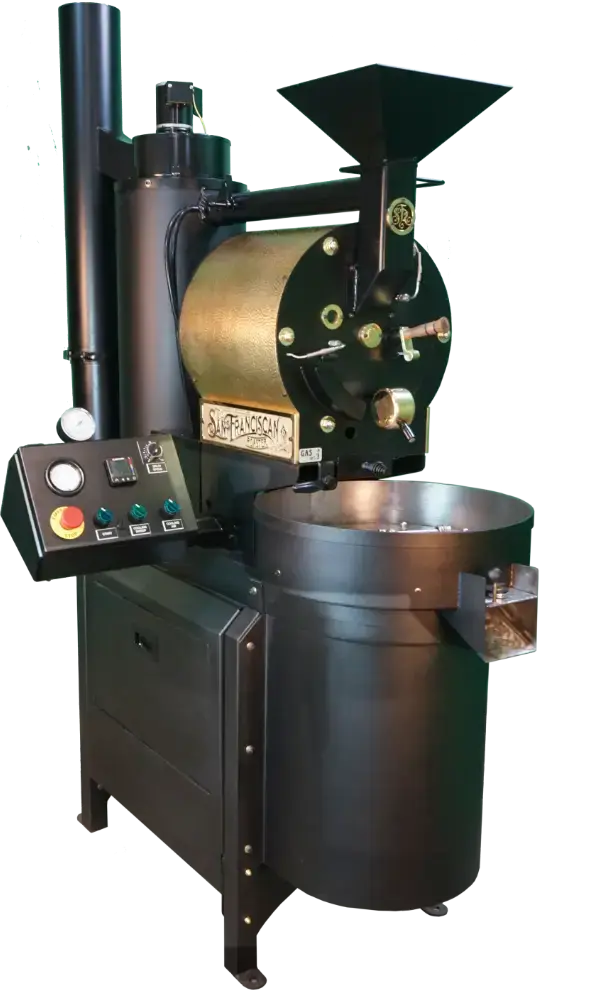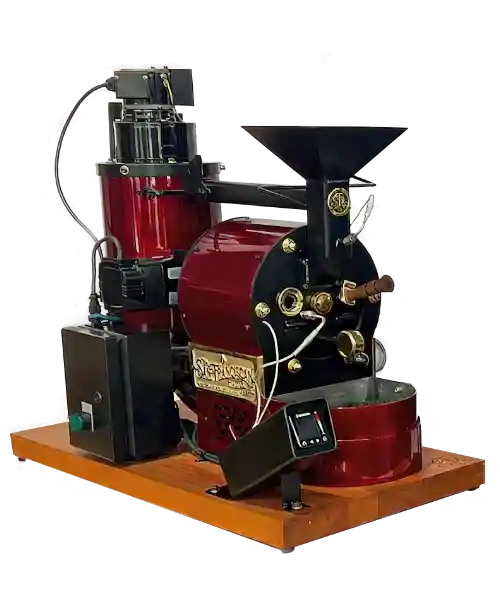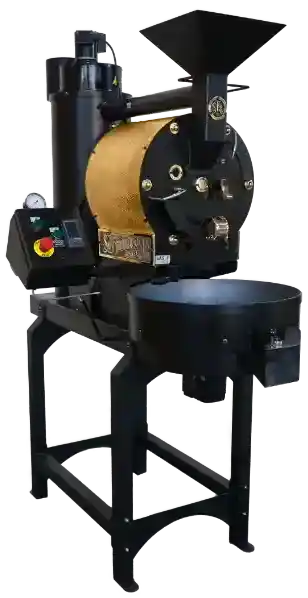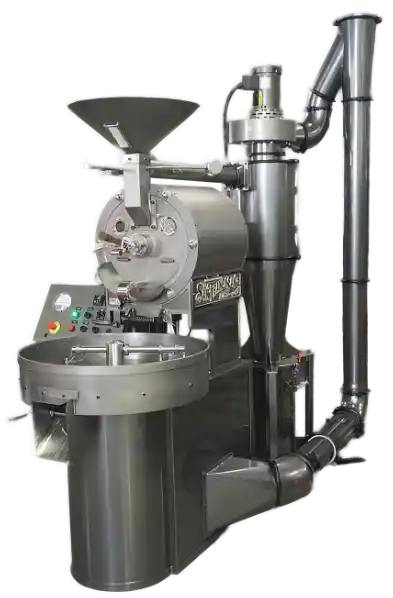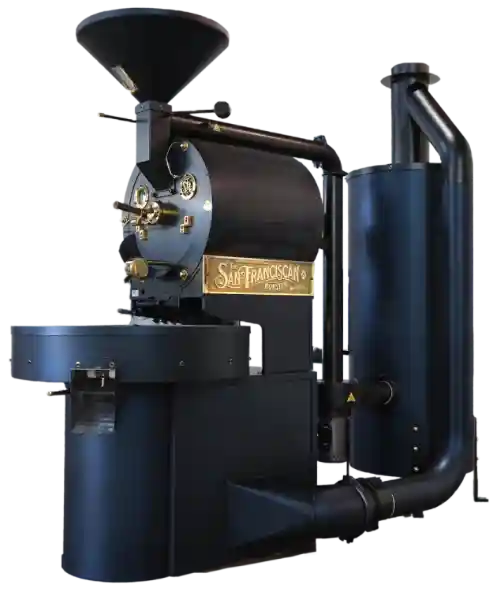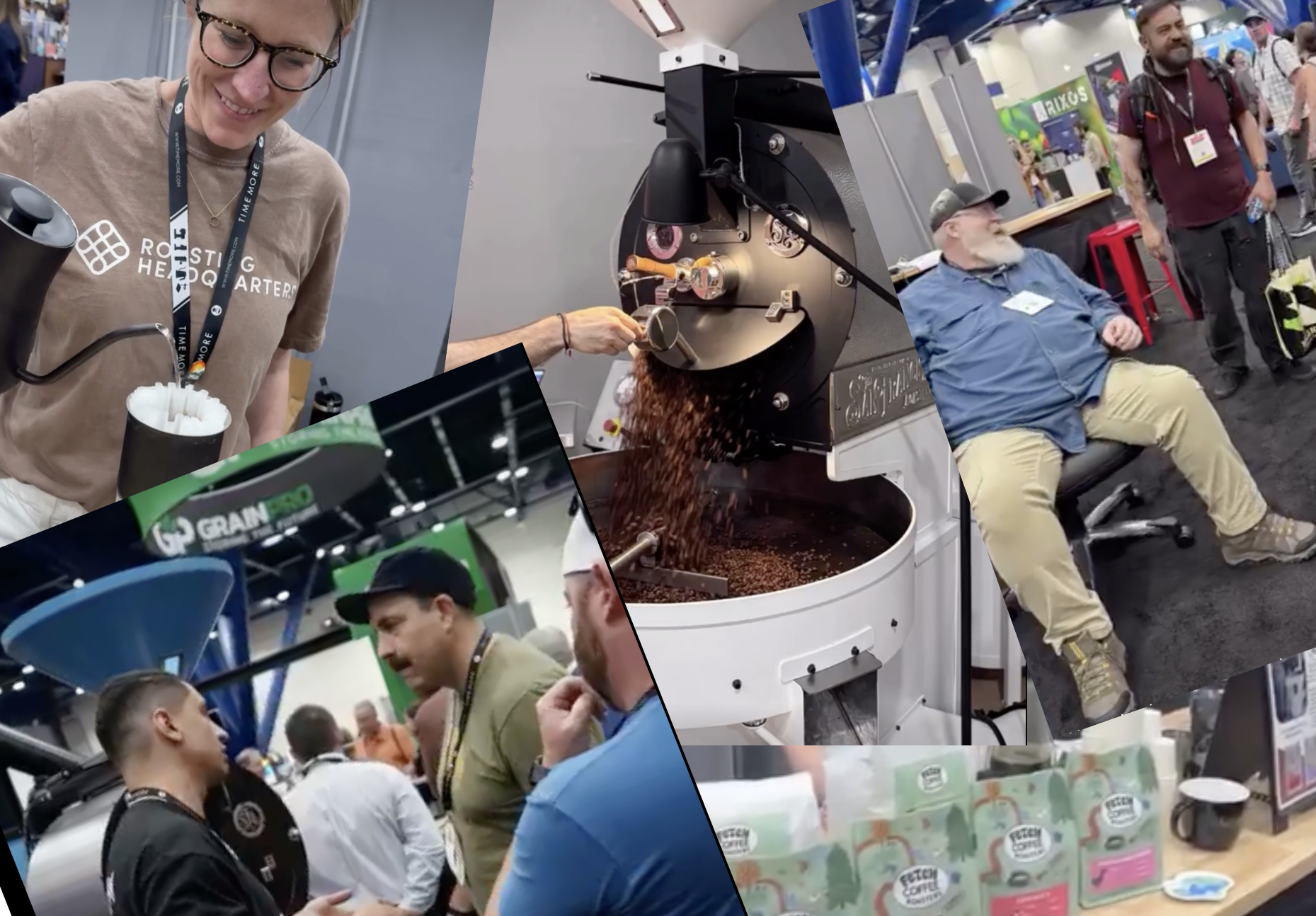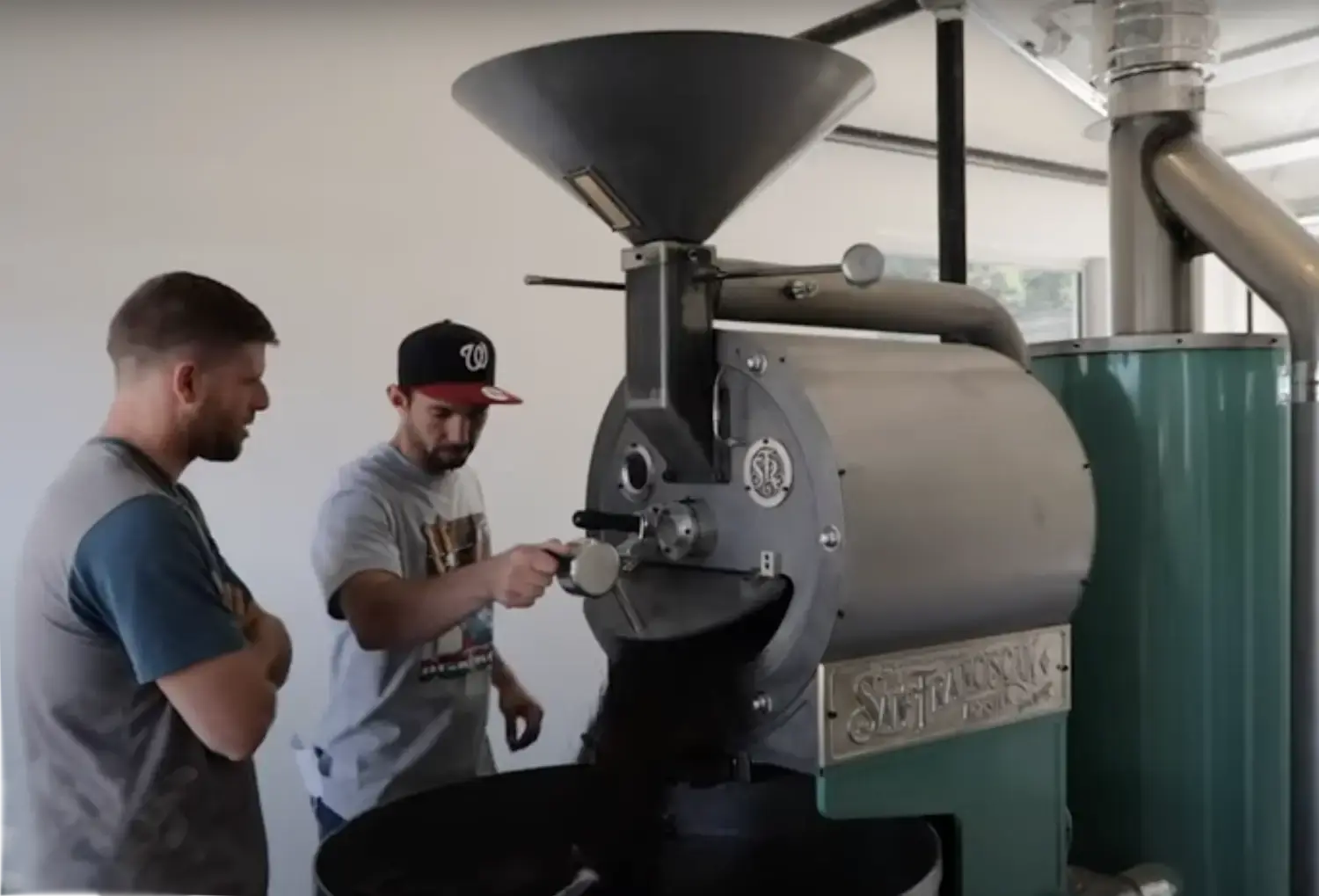Freebird & Co: From the Corporate Grind to the Coffee Grind

There’s a moment many of us imagine—sitting at our desks, watching the cursor blink, wondering what it would be like to leave it all behind and start something of our own. For Finch and Marechen Clark, that moment wasn’t just a daydream. It became a plan, then a plane ticket to a coffee expo, then a roaster in their garage. And finally, it became Freebird & Co.
In this episode of Coffee Roasting Legends, Bill Kennedy sits down with the Clarks to talk about their leap from corporate America into the world of specialty coffee, their transformation from HR executives to hands-on roasters, and how they’re building a legacy one roast—and one relationship—at a time.
You can watch the video of our interview at the bottom of this article.
✨ A Boardroom Meet-Cute and a Pandemic Epiphany
Before they were partners in coffee, Finch and Marechen were partners in policy—working in human resources governance in the financial services industry. They met in a boardroom, disagreed over an HR protocol, and something sparked. Their shared values, sense of humor, and resilience carried them through career highs and personal challenges. But by the time the pandemic turned offices virtual and routines inside out, both were feeling the strain of their high-achieving paths.
What had once been symbols of success—promotions, remote work, professional accolades—started to feel confining. They craved something more grounded, more human, and more aligned with the kind of legacy they wanted to leave for their blended family.
And then, almost by accident, they walked into a coffee roastery.
The Moment Everything Changed
The roastery wasn’t just filled with the smell of roasting beans—it was filled with purpose. Finch and Marechen saw the owner's kids' artwork on the walls, the blend of art and science in the roasting process, and a business model built around joy, not just margins. It was tactile. It was community-oriented. It was real.
That’s when the idea began to percolate: What if coffee could be their legacy?
Neither had a background in roasting. But they had passion, grit, and a desire to build something meaningful—not just for themselves, but for their children, many of whom are neurodiverse and who might not thrive in the same systems their parents had. Coffee was a daily ritual that had helped them survive the grind. Maybe now it could help them escape it
Enter: Goldie

Their first introduction to San Franciscan Roasters came during their research phase. After comparing machines, they reached out to our team—and we invited them to visit us at the Specialty Coffee Expo in Chicago. They packed up the kids, enlisted Grandma for support, and hit the road.
What they found at the expo was more than a machine. It was a tool for transformation.
They met the San Franciscan team, saw the roasters in action, and placed their order for the roaster that would become the heart of Freebird: Goldie—named after the goldfinch (Iowa’s state bird), Goldilocks (for helping customers find the “just right” roast), and as a nod to the shimmering possibility of their new life.
They brought Goldie home, rolled up their sleeves, and got to work.
Coffee and Neurodiversity
 What makes Freebird & Co. truly special isn’t just the beans or the branding—it’s the philosophy behind it.
What makes Freebird & Co. truly special isn’t just the beans or the branding—it’s the philosophy behind it.
Finch and Marechen are parents of neurodiverse kids and are neurodivergent themselves.
For years, they had to mask, compartmentalize, and overachieve in systems that didn’t always understand them. Now, they’re building a business where that masking is unnecessary.
Authenticity is the first pillar of their mission: Live authentically. Connect deeply. Thrive together.
That mantra informs everything from their community partnerships to the way they talk about mental health, inclusion, and asking for help.
“Coffee,” Finch says, “became a metaphor for being. Every bean has to go through heat to unlock its best self.”
Beyond the Beans
The Clarks also partner with local schools to talk about entrepreneurship and empowerment. They encourage students to identify their strengths, celebrate their peers, and recognize that success doesn’t come from fitting in—it comes from showing up, as you are, and asking for help when you need it.
“Every child in this room is whole, capable, and uniquely able,” Marechen tells students. It’s a message just as applicable to grown-ups trying to leave their own version of the grind behind.
What's Next?
Still early in their journey, Finch and Marechen are exploring how Freebird can grow. More wholesale partners? A dedicated roastery café? Community roasting workshops? All are on the table.
But whatever direction they take, the mission remains the same: live authentically, connect deeply, and thrive together.
Useful Links
- The Freebird & Co. webpage is here: https://www.freebirdandco.com
- The roaster in the background of the interview is the SF-25
Here is the full interview
